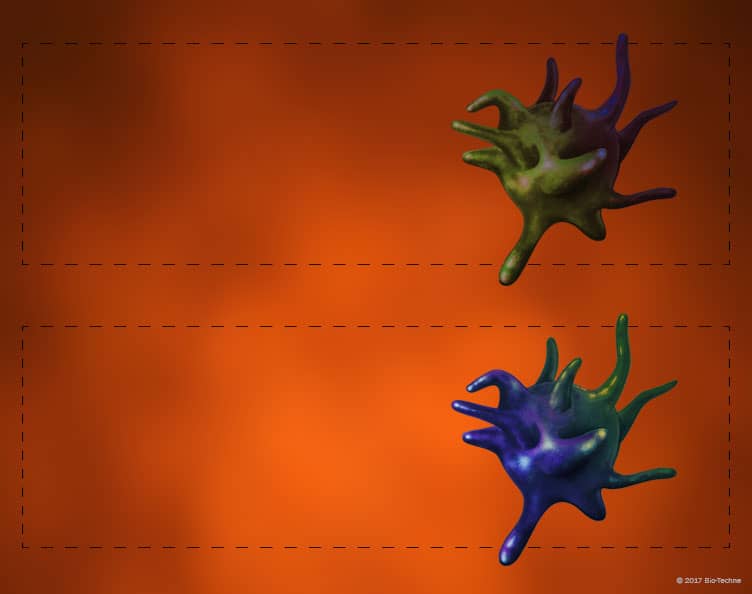Mouse Non-Lymphoid Tissue Classical Dendritic Cell Subset Markers
Click on one of the dendritic cell types shown in the buttons below to see the markers that are commonly used to identify the different dendritic cell subsets.

Overview
In mouse non-lymphoid tissues, two major populations of classical dendritic cells (cDCs) have been identified: CD103+CD11b- cDCs and CD103-CD11b+ cDCs. Although CD103+CD11b- cells do not express CD8 alpha, they are the mouse non-lymphoid tissue equivalent of lymphoid tissue CD8 alpha+ cDCs. Similar to lymphoid tissue CD8 alpha+ cDCs, non-lymphoid tissue CD103+CD11b- cDCs express CLEC9a and XCR1 and lack expression of CD11b/Integrin alpha M, DC-SIGN/CD209, F4/80, and SIRP alpha/CD172a. In addition, both subsets require the transcription factors, Id2, IRF8, and Batf3 for their development, and they are functionally specialized to cross-present antigens on MHC class I molecules to CD8+ T cells. Less is known about mouse non-lymphoid tissue CD103-CD11b+ cDCs. Research suggests that this subset seems to be somewhat heterogeneous, and therefore, specific markers that may be useful for identifying these cells in different tissues may differ. In general, these cells can be distinguished from CD103+CD11b- cDCs by their expression of CD11b/Integrin alpha M, F4/80, SIRP alpha/CD172a, and CX3CR1, coupled with their lack of expression of CLEC9a and XCR1. Both subsets of mouse non-lymphoid tissue cDCs are migratory cells that travel to the tissue-draining lymph nodes through the afferent lymphatics.


